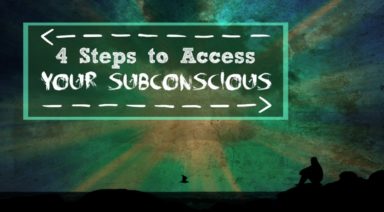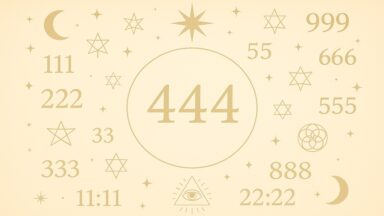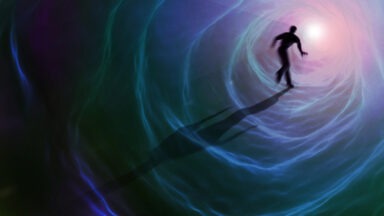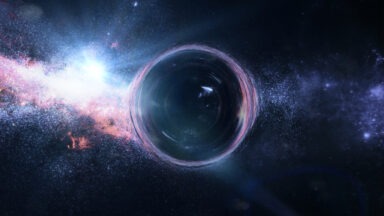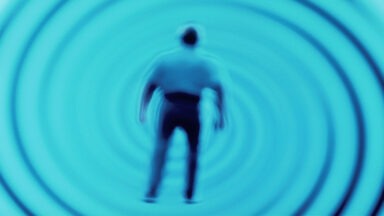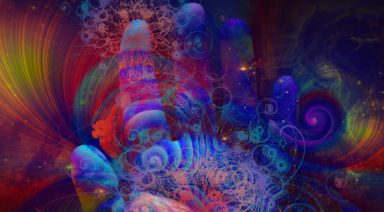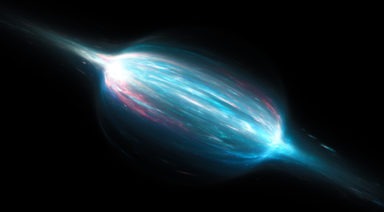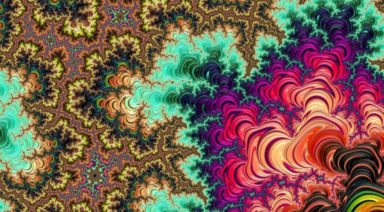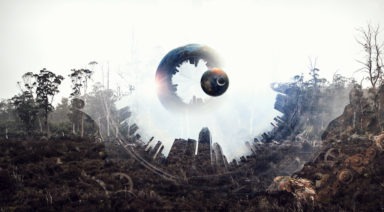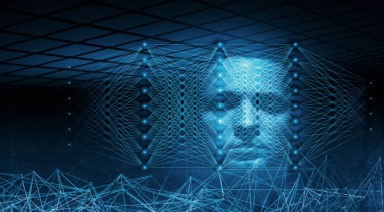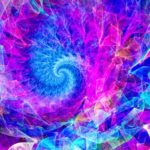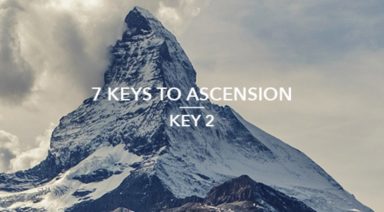6 Ways to Unlock Your True Potential

Even as we strive to be compassionate and loving beings to those around us, sometimes we forget to love ourselves. Part of loving ourselves is not restricting ourselves from shining brightly in the world. I have discovered that the biggest block in my life has been learning how to step into my true power and potential without letting the opinions of others pull me down.
Being powerful can often feel self-serving, especially if you surround yourself with people who live as if it is unsafe to shine their light and become powerful leaders. Here are some tips for unlocking your true potential.
- Don’t Apologize for Voicing Your Truth
It seems self-explanatory that this is counterproductive to our growth as human beings, yet too many of us catch ourselves on a regular basis interrupting ourselves midway through a thought and justifying our thoughts. If you feel you need to explain yourself, justify your truth, or apologize for the way you feel, ask yourself why you feel uncomfortable and see if you can change your response next time.
- Share Your Story
This goes along with #1, which is about sharing your story without punishing yourself by telling yourself this is being “egotistical.” This is another form of self-harm! This has been one of the most difficult hurdles for me—to get over the hump and not feel self-conscious when I share my story with others. You may notice people you come across feel uncomfortable with your openness and willingness to share yourself, but don’t let that bring you down! It is absolutely safe to love and appreciate yourself, and share it with everyone you meet!
- Empower Your Audience
If you are stuck in a situation of letting yourself become disempowered by another individual(s) in your life, challenge yourself to turn the situation around and ask your friend, “What is your gift?” This simple sentence is very powerful, because it takes the pressure off of you to take on a burden that is not yours to take on, and it empowers your friend at the same time. Instead of allowing someone else to feel less than you in response to your ability to share, allow them the space to realize their gifts!
- Identify Your Tribe
Remember, not everyone in your life is there to support you. Some are there to push you to greater heights, help you find your truth, heal a deep wound, or learn the true meaning of unconditional love.
It can be extremely painful and make you question your entire life’s purpose in one swift blow, but it’s important to always come away from the situation with the knowing that life is not rebelling against you, it’s all being orchestrated for you.
There are also those whom you will identify as part of your tribe. Your tribe consists of people who support and love you unconditionally, allow you to speak your truth freely, respect differences of opinion, allow you to grow and shine your light, and never restrict you to move forward in your life. Take a moment to identify them and have gratitude for them. They could be your bus driver, someone at your yoga class, your neighbor across the street or your Uncle Joe. Let them know you love and appreciate them!
- Confront Yourself — the Good, the Bad and the Ugly
Yep, this is the hardest one, which is also why it’s toward the bottom of the list. Confront yourself and take credit for the ways that you have stood up for yourself, believed in yourself, as well as let yourself down by allowing that inner voice to tell you that you can’t do it and that you’re not good enough. Don’t blame it on others, because that’s self-harm as well.
Look at yourself honestly, and take credit for all of it. In the end, your conscious awareness of who you are as an ever-growing and expanding human being participating in this game called life will allow you more room to not feel defeated every time something doesn’t go according to your plan.
- Put Your Superpowers to Work!
Go out into the world and work your magic! Be your own hero!
432 Hz Frequency: What It Is And How To Connect With Its Power

The 432 Hz frequency is a musical tuning used since ancient times by various cultures due to its harmonizing effect on the body and mind. Its sound resonates with mathematical patterns found in nature and is considered a tool for well-being and the expansion of consciousness. In this article, we explore what the 432 Hz frequency is, its uses, and how to incorporate it into daily life.
Table of Contents
- What Is The 432 Hz Frequency?
- What Is The 432 Hz Frequency Used For?
- Differences Between 432 Hz And 440 Hz Frequencies
- How To Use The 432 Hz Frequency In Your Daily Life
What Is The 432 Hz Frequency?
The 432 Hz frequency is a musical tuning that maintains a mathematical relationship with nature and the universe. It is in tune with the golden ratio, present in the structure of the human body and in patterns such as the Fibonacci sequence. Its sound is more harmonious and balanced compared to the standard 440 Hz tuning.
Different civilizations have used this frequency in their spiritual and ceremonial practices. In ancient Greece, Pythagorean music was based on mathematically perfect scales, while in Egypt and India specific sounds were used to induce deep meditative states. Many ancient instruments were designed to vibrate at 432 Hz, suggesting an intuitive understanding of its impact on consciousness.
In the series Sound of Creation, available on Gaia, experts like Gregg Braden and Dr. Robert Gilbert explore the relationship between sound, sacred geometry, and the vibration of the universe. Through scientific findings and ancestral knowledge, this series reveals how certain frequencies can influence perception and human well-being.
What Is The 432 Hz Frequency Used For?
The 432 Hz frequency has multiple applications for harmonizing the body and mind. Its balanced vibration influences emotional states, concentration, and energetic health. Below are some of its main functions:
- Deep relaxation: It lowers heart rate and brain activity, reducing stress and anxiety. Its sound has a calming effect that facilitates meditation.
- Enhanced concentration: It increases mental clarity and promotes focus. Listening to music in this frequency during study or work improves information retention.
- Energy balance: It aligns the flow of energy in the body and harmonizes the chakras. Its vibration restores physical and emotional well-being.
- Greater connection with nature: It resonates with the Earth’s frequency, strengthening the sense of unity with the environment. Listening to it outdoors enhances its beneficial effects.
- Induction to restorative sleep: It promotes progressive relaxation that facilitates deep rest. Using it before bedtime helps improve sleep quality and reduce anxiety before sleeping.
- Emotional healing: It releases accumulated tension and balances the nervous system. Its vibration works on the subconscious, promoting well-being and emotional balance.
- Creativity stimulation: It activates areas of the brain related to inspiration and imagination. It is ideal for boosting creativity in artistic and expressive disciplines.
Differences Between 432 Hz And 440 Hz Frequencies
The 432 Hz and 440 Hz frequencies are both used to tune musical instruments, but generate different effects in those who listen to them. Today, most music is tuned to 440 Hz, a standard officially adopted in the 20th century. However, 432 Hz has been used in various traditions for its more harmonic sound and its ability to induce relaxation.
Many people perceive music tuned to 432 Hz as softer and more balanced, whereas 440 Hz may feel more tense and stimulating. For this reason, 432 Hz is preferred in practices involving meditation, healing, and wellness. While both frequencies can trigger emotional and physical responses, 432 Hz has become a popular alternative for those seeking a more harmonious and profound sound experience.
How To Use The 432 Hz Frequency In Your Daily Life
Incorporating the 432 Hz frequency into your daily routine is a simple way to promote well-being and emotional balance. You can listen to music tuned to 432 Hz during meditation, upon waking, while working, or before sleeping. It’s also helpful in yoga sessions, massages, or any relaxation practice, as its vibration enhances focus and energetic harmony.
-
432 Hz Music For Meditation And Mental Balance
Meditating with 432 Hz music enhances relaxation and facilitates connection with the present moment. Its vibration induces a state of mental calm, reducing internal noise and allowing for a deeper meditative experience. Many people use it to relieve anxiety, improve focus, and enhance introspection.
An example of this frequency can be found in the series Fractal Universe: Meditations for Conscious Elevation, available on Gaia, where sound patterns and geometry are explored to facilitate deep meditative states. The first episode uses a frequency based on the Schumann resonance, related to the Earth’s natural vibration, allowing the mind to synchronize with a state of balance and expansion.
-
Using The 432 Hz Frequency For Energy Healing
The 432 Hz frequency is used in sound therapies to balance the body’s energy and release emotional blockages. It’s believed that its vibration harmonizes the chakras and improves the flow of vital energy, making it effective in practices like Reiki, sound bowl therapy, and vibrational healing sessions.
Listening to this frequency while practicing breathing or visualization exercises can enhance its effects. Its sound generates a sensation of well-being and stability, helping to restore emotional and physical balance. For this reason, many people incorporate it into their healing and self-discovery journey.
-
How To Listen To 432 Hz Music For Better Sleep
Music in 432 Hz is an effective tool to improve sleep quality and reduce anxiety before sleeping. Its soft, enveloping sound slows down mental activity, helping the body enter a state of deep relaxation. Listening to it for a few minutes before bed can ease the transition to sleep and reduce insomnia.
To enhance its effects, it’s advisable to create a quiet and distraction-free environment. You can combine the music with slow breathing exercises or nature sounds tuned to the same frequency. This practice calms the nervous system and promotes more restorative rest.






